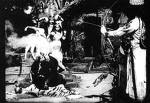
This month we read our first title set mostly in Pakistan, by Daniyal Mueenuddin, the discussion that followed took some lively turns. The largest sense was that the book was very well written and pretty depressing. The cleavage between those that admired the book and those that didn’t can be described thus: those that felt it could not be liked because there is no one likable in the story, and the others (majority) whom nevertheless found the writing very accomplished. Anne made a comparison to Joyce’s The Dubliners, in which most of the characters are darkly written. The themes of inheritance and class maintenance were also discussed. Kate P. noted that the stories have a sense of Nietzsche’s philosophy, that power is at the center of all relationships, and the jockeying for power the central motive for every character at every class level. Mueenuddin seems to be criticizing Pakistani society on this basis. However many noted that this is not unique to Pakistan. On the other hand, Amardeep mentioned that due to semi-socialist acts of the Indian government mid- century, the zaminders’ land holdings were broken up and some of their hegemony was broken down, therefore in contrast to India, his sense is that Pakistani society has remained more feudal than India’s. Amardeep read some passages that he found particularly brilliant in their turn in meaning from the beginning to the end of a paragraph, and revealing of much in a few words. An interesting contrast was made between Mistry and Mueenuddin, in which we realized that both are good at exposing the motives of opposing characters but Mistry has a gift for making us like them despite ourselves. Shalini liked the style of the stories very much as well, admiring their artistry.



